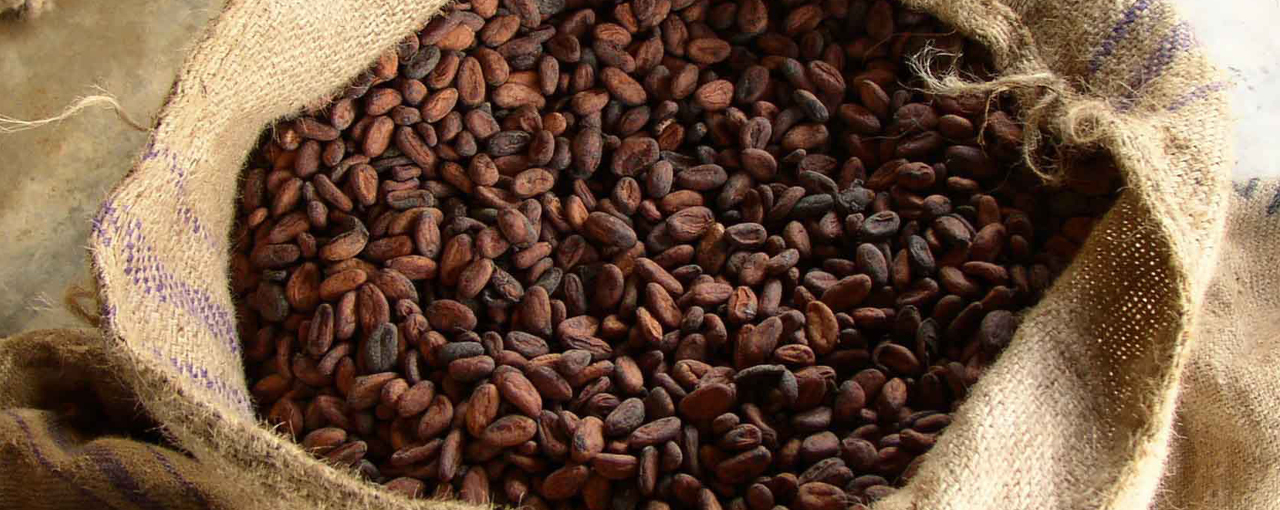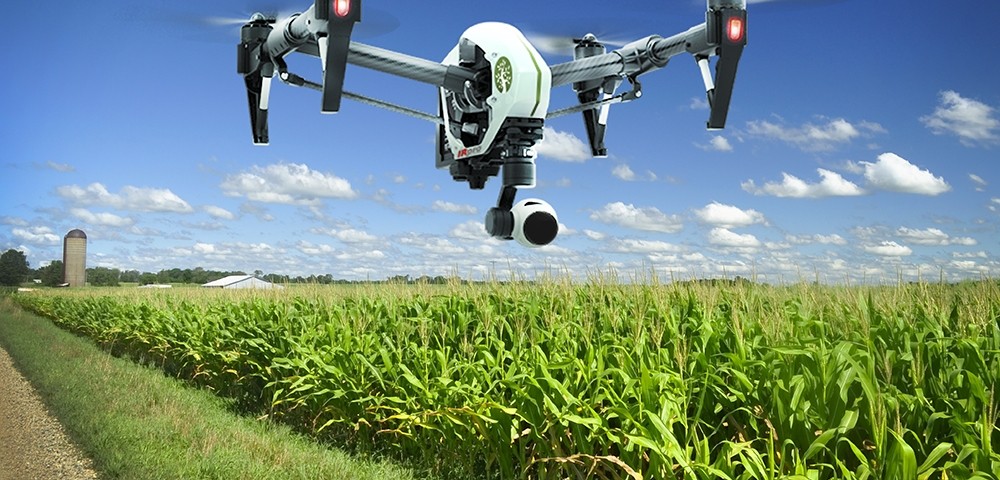
PIND tasks FG, others on Cocoa value chain
May 21, 2018
Niger Delta Conflict Tracker (March – April 2018)
May 24, 2018
In Nigeria today, hunger prevalence is on the rise and in paying attention to the country’s food production level, the difficulty experienced in meeting domestic food needs and the challenge in exporting our local products, it is easy to conclude that Nigeria is food insecure.
The petroleum-based economic model of the Nigerian economy has made it lose its force as an export-led economy and as the government makes effort to diversify the economy towards achieving food security, it is important to learn about how technology can help achieve this objective.
There is really no gainsaying about the fact that technology has come to stay in Africa considering the renaissance it has generated across different sectors in Africa. This piece will explore the developments that technology offers Agriculture and how Nigerian farmers can capitalize on its nuances towards revamping the economy.
The fourth industrial revolution is already at our door, how we get to deal with it matters in the long run for us as individuals and for the African continent. We cannot explore the beauty of the fourth industrial revolution without essentially taking a sneak peek at the industrial revolutions that preceded it.
The first industrial revolution used water and steam power to mechanize production. The second used electric power to create the mass production. The third used electronics and information technology to automate production and here we go, a fourth industrial revolution, with an exponential evolution against the linear trend. The possibilities of billions of people connected by mobile devices, with unprecedented processing power, storage, capacity and access to knowledge are unlimited. And these possibilities will be multiplied by emerging technology breakthroughs in fields such as artificial intelligence, robotics, the internet of things, autonomous vehicles, 3-d printing; nanotechnology, biotechnology, materials science, energy storage and quantum computing. (Klaus Schwab, 2016).
IoT, Cloud Computing, and Precision Agriculture
One of the pecks of technological advancements is the Food and Agriculture renaissance. Modern Agricultural practice has proven to be of positive benefits to farmers globally and one of such practice is the Precision Agriculture otherwise known as Satellite farming. Precision Agriculture essentially collect data through satellite and aerial imagery and aggregate these data for precise planting. PA fosters traceability, i.e. recording through RFID tags, barcodes, movement of product and steps within production process (Fact Sheet, 2007).
PA also makes use of drones also known as UAV4Ag (Unmanned Ariel Vehicle for Agriculture). Drones can help farmers achieve increased crop productivity and efficient monitoring of crop growth. Farmers need to upgrade to using drones to increase productivity. Drones can do soil and field analysis for irrigation and nitrogen-level management, the drone-planting system can plant at an uptake rate of 75% and reduced cost of 85%, irrigate, provide crop health assessment amongst others. (PWC, 2016)
Today, it is easy to connect devices, vehicles, home appliances with sensors, connectivity et al and exchange data across the board. The internet of things has created opportunities for more direct integration of the physical world into computer-based systems (Satucci, 2016) and with little human efforts, efficient and accurate connectedness, data sharing happens.
What this means for Agriculture is that farmers can use biochip transponders on farm animals. Biochips enable researchers to quickly screen large numbers of biological analytes for a variety of purposes, from disease diagnosis to detection of bioterrorism agents (Rosa, 2009). Diseases outbreak recorded in past years could have been managed, from Lassa Fever to Monkey Pox etc.
ALSO READ: PBR Cowpea could generate N48 billion for Nigeria
Is the Niger Delta ready for the Fourth Industrial Revolution?
Femi Royal: A careful examination of food security issues in Nigeria
Mobile Agriculture (mAgri)
Information communication technologies (ICTs) such as mobile phones and SMS are changing the way farmers track weather patterns, access market information, interact with traders and government agencies and get paid for their crops (Sara Gustafson, 2016). It has been known to provide innovative solutions to the many Agricultural challenges and it essentially fosters communication and learning process between actors involved in Agriculture (Cecilia, 2012) and Since the transitioning from Web 1.0 to Web 2.0, knowledge sharing and collaboration has never been this awesome. Web 2.0 has offered amazing opportunities for more timely information from efficient tools like wikis, blogs, social networking, and podcasting such as Wikipedia, YouTube, Facebook, and Flickr.
Digital technology has provided a leeway for Mobile Agriculture to thrive. In the past, youth consider Agriculture as rural and for the old people in the local communities, mAgri offers an amazing opportunity for youth to use digital technologies-the internet, their mobile phones amongst others to collect, store and share digital information at an amazing speed and this predicated on Nigeria’s internet base of 147 million people according to NCC.
mAgri is a key to scaling up agricultural innovations and improving smallholder farmers’ access to markets, information and financial services (Thompson, 2017). Farm management software that increases farmers access to funding and investment opportunities are ubiquitous and because farmers need credit to survive, Mobile technology offers digital financial services and with the advent of blockchain, the opportunities are endless. MyFarmbase Africa (myfarmbase.com.ng) prides itself in using digital technologies in bridging information gap in the Agricultural sector for farmers in Africa.
Blockchain for Agriculture
Blockchain technologies can derisk Agriculture, and it can catalyze financial inclusion for farmers and reduce over-reliance on USD in commodity exchange, it can also guarantee food safety.
Today, what most of us know about Blockchain is cryptocurrency and we have been quick to compare it to MMM, and at least our government not entirely ready for the future are busy pursuing regulations, and this for tax purposes. However, blockchain will disrupt the 1 trillion dollar agribusiness industry as it is doing to other sectors, certain countries now leverage blockchain to conduct elections.
The beauty of it that, it is transparent and incorruptible so if you have questions like
What is the source of my food?
Is the land I am buying or leasing litigation free?
Is the government input subsidy reaching the farmers or being diverted as usual?
Or even farm financing or how farmers can get financial inclusion, the answers are there for you
I have simply been able to draw your expensive attention to what smart farming is and the 3 tech value chains that you can easily play in. These tech innovations bridge information, finance and productivity gap which is central to our food challenge in Nigeria.
___________________
Femi Royal is Founder of MyFarmbase.com.ng and he writes from the ancient city of Abeokuta. He can be reached on info@myfarmbase.com.ng









